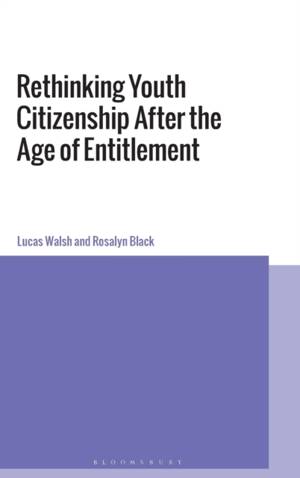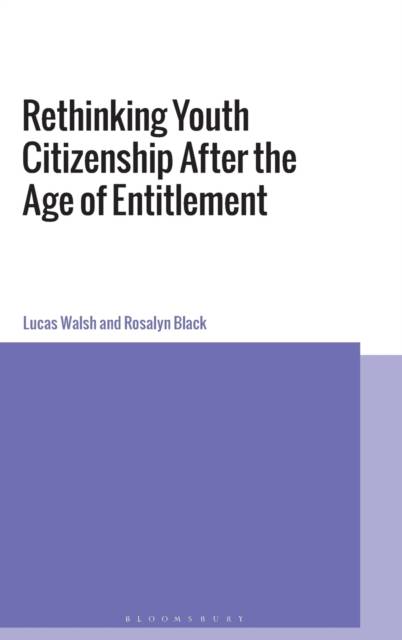
Bedankt voor het vertrouwen het afgelopen jaar! Om jou te bedanken bieden we GRATIS verzending (in België) aan op alles gedurende de hele maand januari.
- Afhalen na 1 uur in een winkel met voorraad
- In januari gratis thuislevering in België
- Ruim aanbod met 7 miljoen producten
Bedankt voor het vertrouwen het afgelopen jaar! Om jou te bedanken bieden we GRATIS verzending (in België) aan op alles gedurende de hele maand januari.
- Afhalen na 1 uur in een winkel met voorraad
- In januari gratis thuislevering in België
- Ruim aanbod met 7 miljoen producten
Zoeken
Rethinking Youth Citizenship After the Age of Entitlement
Lucas Walsh, Rosalyn Black
Hardcover | Engels
€ 296,95
+ 593 punten
Uitvoering
Omschrijving
Rethinking Youth Citizenship After the Age of Entitlement provides a primer for exploring hard questions about how young people understand, experience and enact their citizenship in uncertain times and about their senses of membership and belonging. It examines how familiar modes of exclusion are compounded by punitive youth policies in ways that are concealed by neoliberal discourses. It considers the role of key institutions in constructing young people's citizenship and looks at the ways in which some young people are opting out of established enactments of citizenship while creating new ones. Critically reflecting on recent scholarly interest in the geographical, relational, affective and temporal dimensions of young people's experiences of citizenship, it also reinvigorates the discussion about citizenship rights and entitlements, and what these might mean for young people.
The book draws on global research and theories of citizenship but has a particular focus on Australia, which provides a unique example of a country that has fared well economically yet is mimicking the austerity measures of the United Kingdom and Europe. It concludes with an argument for a rethinking of citizenship which recognises young people's rights as citizens and the ways in which these interact with their lived experience at a time that has been characterised as 'the end of the age of entitlement'.
The book draws on global research and theories of citizenship but has a particular focus on Australia, which provides a unique example of a country that has fared well economically yet is mimicking the austerity measures of the United Kingdom and Europe. It concludes with an argument for a rethinking of citizenship which recognises young people's rights as citizens and the ways in which these interact with their lived experience at a time that has been characterised as 'the end of the age of entitlement'.
Specificaties
Betrokkenen
- Auteur(s):
- Uitgeverij:
Inhoud
- Aantal bladzijden:
- 232
- Taal:
- Engels
Eigenschappen
- Productcode (EAN):
- 9781474248037
- Verschijningsdatum:
- 22/03/2018
- Uitvoering:
- Hardcover
- Formaat:
- Genaaid
- Afmetingen:
- 157 mm x 236 mm
- Gewicht:
- 476 g

Alleen bij Standaard Boekhandel
+ 593 punten op je klantenkaart van Standaard Boekhandel
Beoordelingen
We publiceren alleen reviews die voldoen aan de voorwaarden voor reviews. Bekijk onze voorwaarden voor reviews.









